10 Best Herbal Capsules For Baldness

Herbal capsules for baldness are dietary supplements that contain natural ingredients believed to support hair growth and prevent hair loss.
Common herbs used in these capsules include saw palmetto, biotin, rosemary, and nettle, which are thought to promote scalp health and stimulate follicles. While some studies suggest these herbs may help improve hair density, scientific evidence remains limited, and results can vary among individuals. These capsules are often marketed as a natural alternative to conventional treatments like minoxidil or finasteride.
As with any supplement, it is advisable to consult a healthcare professional before starting a regimen for baldness.
Table of Contents
- 1. Turmeric (Curcuma longa)
- 2. Goatweed (Eclipta prostrata)
- 3. Bacopa (Bacopa monnieri)
- 4. Aloe vera (Aloe barbadensis)
- 5. Centella (Centella asiatica)
- 6. Moringa tree (Moringa oleifera)
- 7. Thistle (Silybum marianum)
- 8. Chaste tree (Vitex agnus-castus)
- 9. Salvia (Salvia officinalis)
- 10. Stinging nettle (Urtica dioica)
1. Turmeric (Curcuma longa)

Curcuma longa, commonly known as turmeric, contains curcumin, a compound known for its anti-inflammatory and antioxidant properties.
While it is widely used for its health benefits, there is limited scientific evidence supporting its effectiveness in treating baldness or promoting hair growth. Some studies suggest that curcumin may help improve scalp health by reducing inflammation and oxidative stress, which could indirectly support hair follicle function. However, most research on turmeric's impact on hair loss has been preliminary or anecdotal, and more rigorous clinical trials are needed to confirm its efficacy.
As a result, curcuma longa herbal capsules should not be considered a primary treatment for baldness without consultation with a healthcare professional.
2. Goatweed (Eclipta prostrata)
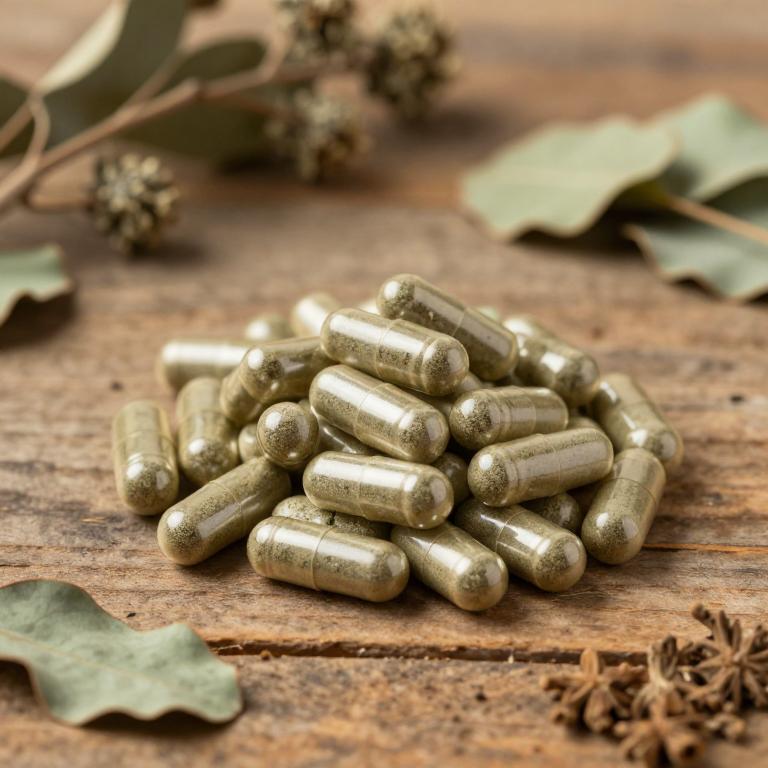
Eclipta prostrata, commonly known as false dandelion, is a traditional herbal remedy that has been used for centuries in Ayurvedic medicine to support hair growth and combat baldness.
The active compounds in Eclipta prostrata, such as wedeloin and ecliptin, are believed to stimulate hair follicles and promote the production of keratin, which is essential for healthy hair. Herbal capsules made from Eclipta prostrata are often marketed as natural alternatives to conventional hair loss treatments, offering a holistic approach to managing baldness. These capsules are typically taken orally and are said to improve scalp health, reduce dandruff, and enhance overall hair density.
While some studies suggest potential benefits, it is important to consult with a healthcare professional before using Eclipta prostrata, especially if you have underlying medical conditions or are taking other medications.
3. Bacopa (Bacopa monnieri)
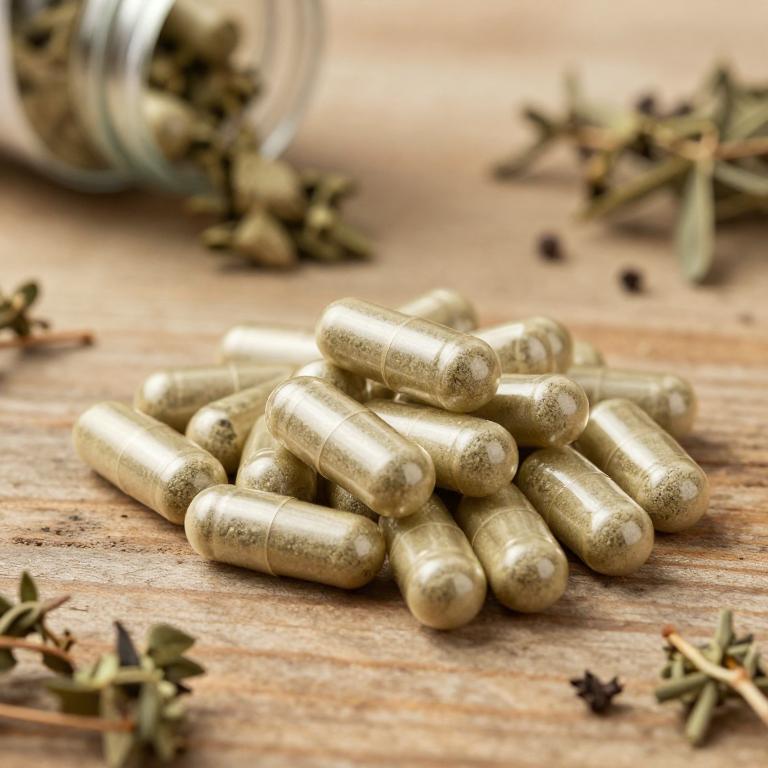
Bacopa monnieri, also known as Brahmi, is an herbal supplement that has been traditionally used in Ayurvedic medicine for its potential cognitive and hair growth benefits.
Some studies suggest that bacopa monnieri may support hair growth by improving blood circulation to the scalp and enhancing the production of proteins necessary for healthy hair. While there is limited scientific evidence directly linking bacopa monnieri to the prevention or treatment of baldness, it is often marketed as a natural alternative for promoting thicker and stronger hair. Herbal capsules containing bacopa monnieri are available in various formulations, and they are generally considered safe when taken in recommended dosages.
However, individuals experiencing significant hair loss should consult with a healthcare professional before using bacopa monnieri or any other supplement.
4. Aloe vera (Aloe barbadensis)
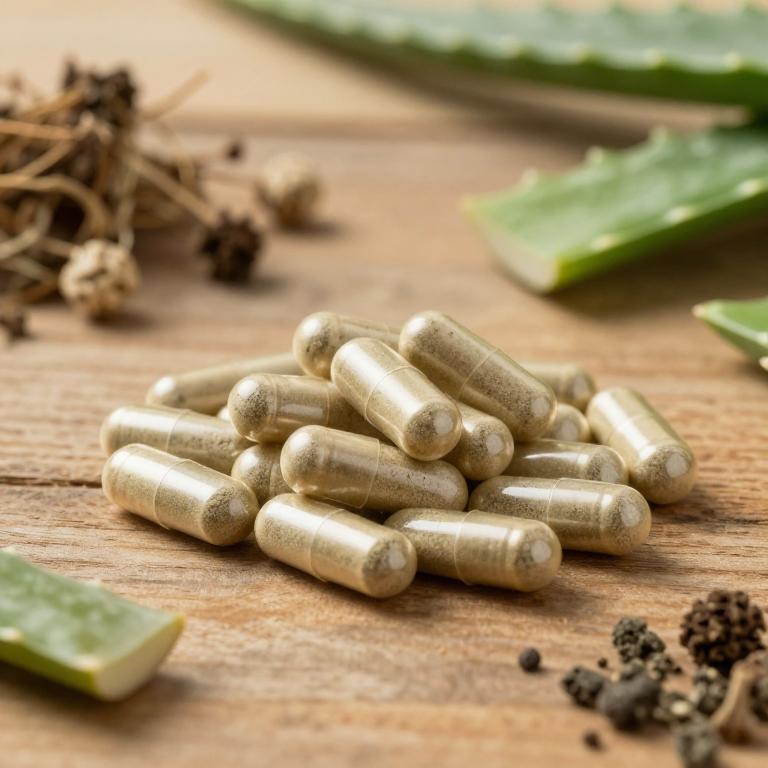
Aloe barbadensis, commonly known as aloe vera, is often touted for its potential benefits in promoting hair growth and addressing baldness.
While scientific evidence supporting its effectiveness for hair regrowth is limited, some studies suggest that aloe vera may stimulate hair follicles and improve scalp health due to its anti-inflammatory and moisturizing properties. Aloe barbadensis herbal capsules are typically used as a complementary treatment alongside other hair growth therapies, such as minoxidil or finasteride. These capsules are believed to provide essential nutrients and antioxidants that may support overall scalp and hair health.
However, individuals considering aloe vera for baldness should consult with a healthcare professional to ensure it is safe and appropriate for their specific condition.
5. Centella (Centella asiatica)
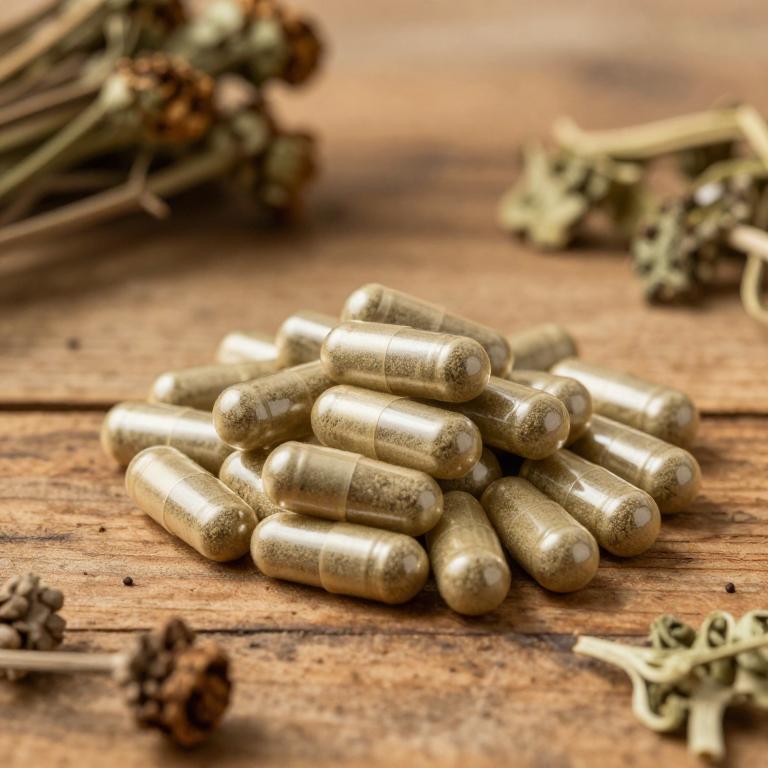
Centella asiatica, also known as gotu kola, is a traditional herbal remedy that has been used for centuries in Ayurvedic and Chinese medicine for its potential benefits in promoting hair growth and scalp health.
Herbal capsules containing Centella asiatica are believed to stimulate the production of collagen and improve blood circulation to the scalp, which may support hair follicle health. These capsules are often marketed as a natural alternative to conventional treatments for baldness, particularly for individuals experiencing pattern hair loss. However, while some studies suggest possible benefits, more scientific research is needed to confirm their effectiveness for treating baldness.
As with any supplement, it is advisable to consult a healthcare professional before starting Centella asiatica capsules, especially if you have existing medical conditions or are taking other medications.
6. Moringa tree (Moringa oleifera)
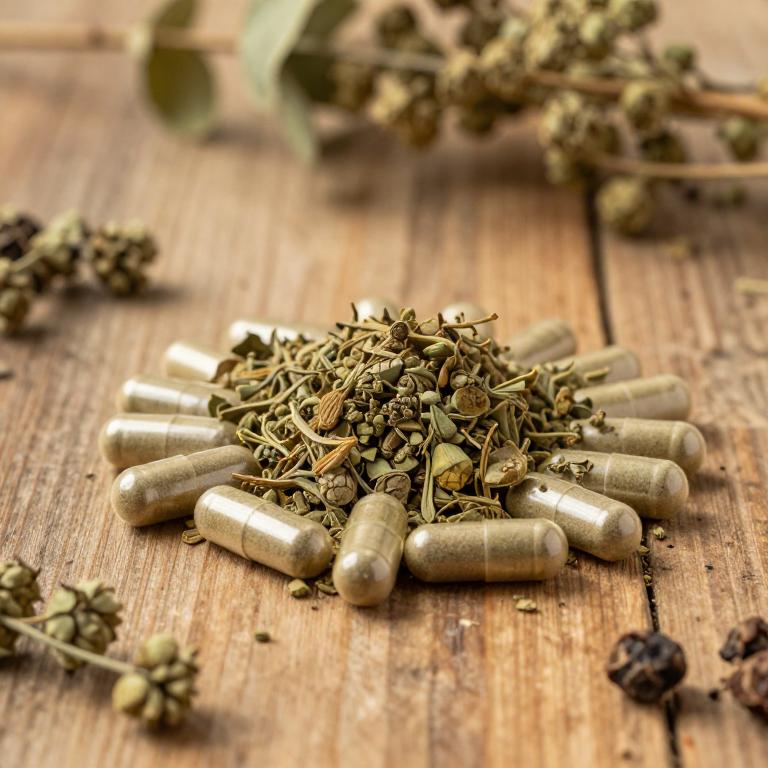
Moringa oleifera herbal capsules are gaining popularity as a natural supplement for promoting hair growth and potentially reducing baldness.
These capsules are derived from the leaves of the moringa tree, which is rich in nutrients such as vitamins, minerals, and antioxidants that support overall hair health. Some studies suggest that moringa may stimulate hair follicles and improve scalp health, which can help in preventing hair loss. However, while preliminary research is promising, more scientific evidence is needed to confirm its efficacy for baldness.
As with any supplement, it is advisable to consult a healthcare professional before starting moringa oleifera capsules, especially for individuals with existing medical conditions or those taking other medications.
7. Thistle (Silybum marianum)

Silybum marianum, also known as milk thistle, is a herbal remedy that has been studied for its potential benefits in promoting hair growth and preventing baldness.
The active compound in silymarin, a group of flavonoids found in the plant, is believed to support liver health and may have antioxidant and anti-inflammatory properties that could indirectly benefit hair follicles. Some preliminary research suggests that silymarin might stimulate hair regrowth by improving scalp health and reducing oxidative stress, which are factors associated with hair loss. However, more clinical studies are needed to confirm its effectiveness for baldness, and it should be used as a complementary therapy rather than a standalone treatment.
As with any herbal supplement, it is important to consult a healthcare professional before starting silybum marianum to ensure safety and appropriateness for individual health conditions.
8. Chaste tree (Vitex agnus-castus)

Vitex agnus-castus, commonly known as chasteberry, is a herbal remedy that has been traditionally used to support hormonal balance, which may indirectly influence hair growth.
While it is not a direct treatment for baldness, some studies suggest that it may help regulate hormones like prolactin and estrogen, which can play a role in hair loss. Herbal capsules containing Vitex agnus-castus are often marketed as natural supplements for women experiencing hormonal imbalances that contribute to thinning hair. However, scientific evidence supporting its effectiveness for baldness is limited, and results may vary among individuals.
As with any supplement, it is advisable to consult a healthcare professional before use, especially if you have underlying health conditions or are taking other medications.
9. Salvia (Salvia officinalis)
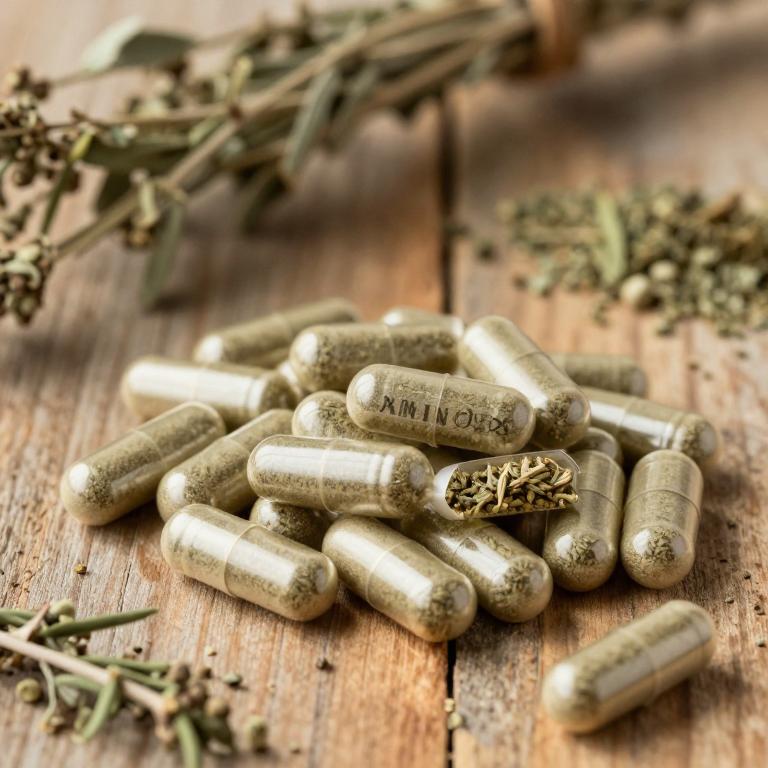
Salvia officinalis, commonly known as sage, has been traditionally used in herbal medicine for various health benefits, including potential support for hair growth.
While scientific evidence on its effectiveness for baldness is limited, some studies suggest that compounds in sage, such as rosmarinic acid and flavonoids, may promote scalp health and stimulate hair follicles. Herbal capsules containing Salvia officinalis are often marketed as natural remedies for hair loss, claiming to strengthen hair roots and reduce shedding. However, it is important to consult a healthcare professional before using these supplements, as they may interact with other medications or have side effects.
Overall, while sage may offer some benefits for scalp and hair health, it should not be considered a substitute for medical treatments for baldness.
10. Stinging nettle (Urtica dioica)

Urtica dioica, commonly known as stinging nettle, is a herb that has been traditionally used for its potential health benefits, including supporting hair growth.
While there is limited scientific evidence directly linking urtica dioica herbal capsules to the prevention or treatment of baldness, some studies suggest that it may promote scalp health and stimulate hair follicles. The capsules are often marketed as a natural remedy for hair loss, containing nutrients like iron, silica, and antioxidants that are believed to enhance hair strength and density. However, more rigorous clinical research is needed to confirm its efficacy for baldness.
As with any supplement, it is advisable to consult a healthcare professional before use, especially for individuals with underlying medical conditions or those taking other medications.